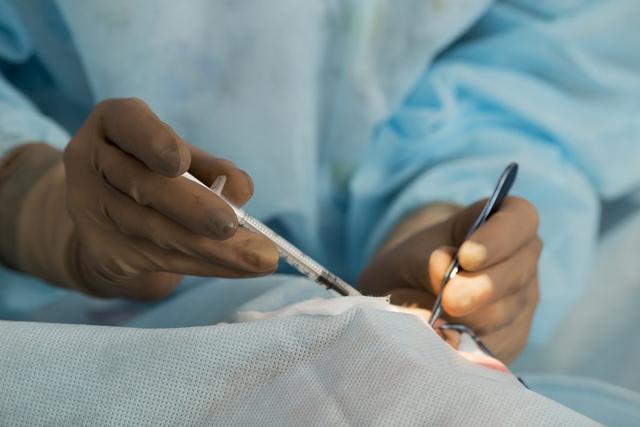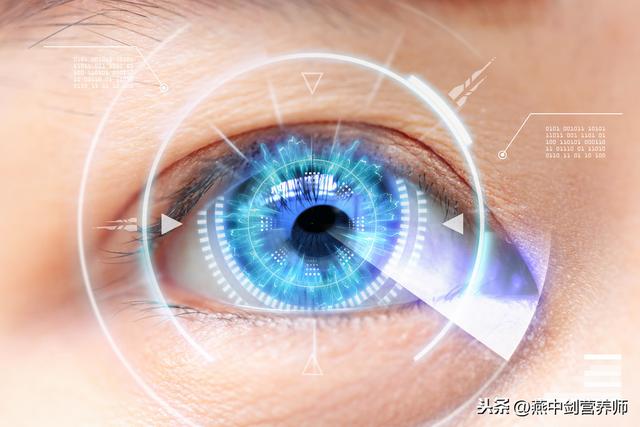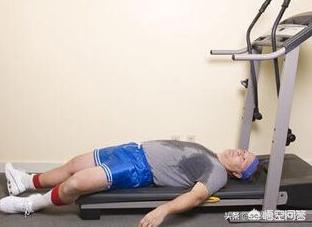Can I have surgery for cataracts caused by diabetes?
Diabetic eye disease is an even more common complication among diabetics, and we routinely perform routine eye exams on diabetics. Epidemiology shows that the prevalence of retinopathy in the known diabetic population ranges from 24-37%, and in the newly diagnosed diabetic population, the prevalence of retinopathy ranges from 3-13%.
This shows the high incidence of diabetic eye disease, and many diabetic patients come to the clinic for the first time because of the symptoms of unclear vision and significant vision loss, and at the same time do a blood glucose test to find out that the blood glucose is high, and diagnosed with diabetes mellitus.
Diabetes mellitus is an important risk factor for cataract, which occurs earlier and progresses more rapidly in diabetic patients than in non-diabetic populations. Clinically, retinopathy is the most common microvascular complication of diabetes mellitus, while cataract is a common ocular complication, with a prevalence of about 60% in type 2 diabetic patients between the ages of 30-54 years, which is five times higher than that of non-diabetic populations.
Cataracts caused by diabetes can certainly be treated surgically; in fact, diabetics can undergo any surgical procedure.
Our specialized ward often serves the sister departments of the surgical system, "escorting", as they say, for surgeries. Almost every day we receive diabetic patients who are ready for surgical treatments, and trauma and emergency patients who are referred to us by the surgical department for blood glucose adjustments. Some of our diabetic patients have undergone interventional procedures for medical emergencies such as cerebral hemorrhage, coronary stenting, coronary artery bypass grafting, as well as major surgeries such as bone fractures and tumors.
That's why preoperative blood sugar adjustments for cataract surgery are even more common, and we have patients preparing for cataract surgery coming in for consultations or hospitalization for adjustments to their treatment regimen almost every day.
Eye surgery is a delicate procedure and has a higher glycemic requirement due to the short duration of the procedure and the fact that the surgical efficacy will be felt relatively earlier. Other elective surgeries can be performed with blood glucose around 8mmol/L. Cataract surgery is recommended to be performed below 7.0mmol/L and glycated hemoglobin is required to be below 6.5%.
Therefore, for those diabetic patients who are planning to undergo surgery, especially those with cataracts, it is important to keep their blood glucose stable, and to make early adjustments to their treatment regimen if their blood glucose is high or fluctuates greatly. It is recommended to keep blood sugar stable for a long period of time, at least 3 months, so that the glycated hemoglobin result is in the desired range.
In fact, not only cataract surgery, but also other elective surgeries for diabetics are required. Even if diabetic patients do not have plans for elective surgeries, they should try to keep their blood sugar normal and stable, so that in case of some emergency surgeries or traumatic injuries, they will be able to have timely surgical treatments, and achieve the desired therapeutic effects.
I'm Dr. Sun, pay attention to Dr. Sun talk about sugar, continue to learn more quality health knowledge, help please like, have questions please leave a message, will reply!
Thanks for the invitation, cataracts caused by diabetes belong to the sequelae of diabetes, can do surgery, subject to a lot of limiting factors, such as the patient's age, the duration of the disease, physical fitness, etc., the treatment of the sequelae of diabetes requires the diagnosis and treatment of a professional physician, it is not recommended to listen to non-medical personnel.

Cataracts complicated by diabetes can definitely be operated on, but only if your blood sugar is up to par. The essence of cataract is the clouding and emulsification of the lens, resulting in poor light transmission. Cataracts can cause blindness in advanced stages. Cataract surgery is to replace the emulsified lens with an artificial lens. Diabetes to do any surgery (including tooth extraction) are required to meet the blood glucose standard fasting 6.0 to do about 7.8 after meals. Only then can the surgery be carried out, otherwise the wound will not be easy to heal the situation, thus complicating the infection. So follow the doctor's advice to stabilize the blood sugar before going to do the surgery. I wish you good health!
As we all know, cataract is a blinding eye disease, and our country is the "hardest hit" by cataract. Currently, cataracts can be treated with surgery, but many cataract patients are confused: if I suffer from high blood pressure and diabetes at the same time, can I still have the surgery?
01 Complete the relevant examinations and control the disease to operate
Nowadays, cataract surgery is a delicate and minimally invasive surgery with small incision and short time. Even for the elderly with poor physical condition, as long as they have good control of blood pressure and blood sugar, perfect professional preoperative examination, good monitoring during operation, exclude relevant contraindications to surgery, and formulate a detailed and complete surgical plan, they are able to undergo cataract surgery. If the physical condition is really very poor, it can be adjusted first before considering cataract surgery.
02 Regular review after surgery
Just because a cataract has been operated on does not mean that the process of treatment is complete, and it is important to continue to keep blood sugar and blood pressure in a stable range after surgery. For recovery from cataract surgery, postoperative checkups, medication and maintenance are especially important.
Usually the operated eye is covered with sterile gauze after cataract surgery, and you need to rest in bed with your eyes closed that day to minimize eye movement.
On the 2nd postoperative day, remove the sterilized gauze and promptly review and give the operated eye drops to prevent infection and anti-inflammatory eye drops as prescribed by the doctor;
One week and two weeks postoperative review to check the recovery of the operated eye and whether to adjust the medication according to the recovery;
If recovery is good, review at 1 month postoperatively and 3 months postoperatively.
[To treat diabetes, you must not do these 5 things]
A contraindication to excessive sugar diabetic patients tend to be more worried about high blood sugar, in fact, the harm of hypoglycemia is not small, the light manifested as panic, sweating, dizziness, paralysis and weakness, the heavy will be serious damage to the middle shu nerves, resulting in impaired consciousness, coma and even death; and hypoglycemia will make the sympathetic excitability increase, causing vasoconstriction, blood pressure, resulting in cardiovascular and cerebrovascular accidents (eg, infarcts, cerebral thrombosis). In addition, prolonged chronic hypoglycemia can lead to cardiovascular and cerebrovascular accidents (e.g. heart attack, cerebral thrombosis, etc). In addition, long-term chronic hypoglycemia can lead to mental retardation or even dementia.
Dieting excessively excessive dieting or partiality will lead to nutritional deficiencies, anemia, starvation ketoacidosis, reducing the body's resistance and repair. Excessive dieting will also lead to hypoglycemia after the rebound increase in blood glucose, is not conducive to the smooth control of blood glucose.
Excessive exercise (anaerobic exercise) can excite the sympathetic nerves, resulting in increased secretion of catecholamines and other insulin-antagonist hormones, which can raise blood glucose. In addition, too long exercise time and too much exercise (especially in the fasting state) will significantly increase the risk of hypoglycemic reaction.
Four taboo overthinking many diabetic patients with heavy psychological baggage, often insomnia, immersed in anxiety and pessimism, self-hatred can not be extricated, resulting in increased or fluctuating blood glucose. Therefore, we must treat diabetes correctly, neither can not pay attention to it, nor be intimidated by it, and strive to deal with it calmly, maintain psychological balance, in order to help the smooth control of blood glucose.
The fifth taboo excessive weight loss is not the thinner the better, should be in line with the standard weight is appropriate. Because too thin will lead to the deterioration of nutritional status, the body's immune function and resistance to decline. Moreover, due to the decrease of hepatic glycogen reserve, the self-regulation ability to hypoglycemia decreases, which increases the risk of hypoglycemia.



First, cataract surgery is a double-edged sword. This surgery was first seen in the Tang Dynasty literature as the Golden Needle Cataract Dialing Technique. Tang Yuzhi, a master of national medicine, performed this surgery on leaders. However, after the surgery, an artificial lens is placed, which causes most patients to develop post-crystalline saccolithiasis within one to five years, which is a much more difficult eye problem to solve that causes blindness. This is why some local doctors recommend that the earlier the cataract surgery, the better, which is incorrect. Since the success rate of all current approaches to cataracts is very low, most of the final stages require surgery. Before proceeding with the surgery, your doctor will evaluate your condition, including blood sugar, and operate after taking effective measures.
As long as the blood glucose control is normal, the blood glucose before meals is less than 8 points, and the blood glucose 2 hours after meals is less than 10 points, can do cataract surgery Oh!
The ones that can are especially susceptible to eye disease in patients with persistent high blood sugar.
You can operate, but you have to keep your blood sugar in the normal range.
This question and answer are from the site users, does not represent the position of the site, such as infringement, please contact the administrator to delete.